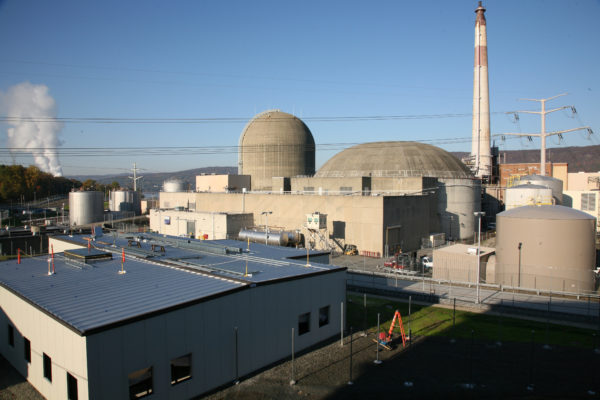State court deals potential blow to Indian Point relicensing efforts

A unanimous decision in the state’s highest court is likely to deal a blow to efforts by the owners of Indian Point Energy Center to relicense its two nuclear reactors in Buchanan.
The State Court of Appeals ruled Monday against Indian Point owner Entergy Corp. and said the company was not exempt from a review from New York’s Department of State to ensure that Entergy’s federal license renewal was consistent with New York’s Coastal Management program. Entergy had argued it wasn’t subject to the state’s coastal regulations, as they took effect after the reactors were already running.
The court ruling settles a back-and-forth legal battle that had been bouncing around state courts for three years. A state Supreme Court judge in late 2013 ruled that Entergy”™s license renewal application was not exempt from review for its consistency with coastal management policies. But then that lower court ruling was reversed one year later by a state Appellate Division judge in favor of Entergy.
The state appealed that decision, and now the state Court of Appeals has ruled in its favor. The court found that Indian Point’s reactors failed to meet any of the exemptions that would remove the state’s right to review compliance with its Coastal Management Program.
The court’s decision may further complicate the ongoing relicensing process from the federal government for Indian Point’s two reactors. Indian Point’s Unit 2 reactor had its license expire in 2013, and Indian Point Unit 3 in 2015. The reactors have continued operating while the federal Nuclear Regulatory Commission reviews its application for a 20-year renewal.
In November 2015, the New York Department of State denied a coastal consistency certification to Entergy, claiming the nuclear plant did not comply with the state’s Coastal Management Program, particularly its protections for coastal ecosystems. Entergy, however, has argued that it actually withdrew that application a year before the state’s ruling, saying it would refile after possible updates to the NRC’s Final Supplemental Environmental Impact Statement.
Jerry Nappi, a spokesman for Entergy, said the company is still reviewing its options following the decision. Those options could include refiling the Coastal Zone Management application that Entergy previously withdrew, he said.
“Notwithstanding this court decision, we continue to believe we will ultimately be successful in obtaining a (Coastal Zone Management) permit and relicensing Indian Point,” Nappi said in a statement. “The facility continues to safely operate in a manner that is fully protective of the Hudson River and in compliance with state and federal law.”
Gov. Andrew Cuomo has been an outspoken opponent of the plant’s relicensing, saying it poses a threat to the densely populated region. He used Monday’s decision to continue that opposition.
“The Department of State already concluded that the Indian Point relicensing application is inconsistent with New York”™s long-standing Coastal Management Program requirements and will continue to use this program to protect New York”™s coastline,” Cuomo said. “Indian Point is antiquated and does not belong on the Hudson River in close proximity to New York City, where it poses a threat not only to the coastal resources and uses of the river, but to millions of New Yorkers living and working in the surrounding community.”
The Ossining-based environmental group Riverkeeper also heralded the decision, calling Monday a “monumental day.”
“This decision effectively stops the Nuclear Regulatory Commission from relicensing Indian Point,” Riverkeeper President Paul Gallay said.
Meanwhile, Entergy has brought a similar fight to the federal courts. In January, the company filed a complaint in federal court in Albany challenging the state’s objection to the relicensing of Indian Point’s reactors because the plant”™s operation is not consistent with the state”™s coastal management program. The lawsuit claims the state does not have jurisdiction to rule on matters related to nuclear safety. The matter is still pending in federal court.